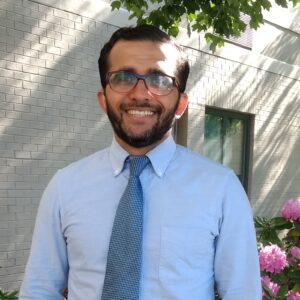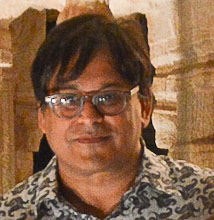What is the ISF Major?
The ISF (Interdisciplinary Studies Field) major is a unique program at Cal that offers students a special opportunity to take advantage of the University’s strengths as a research institution. Providing a research-driven liberal education, ISF allows students to design their own original program of research and study, resulting in a personalized Course of Study and a major research project (Senior Thesis). The ISF major is intended for students who wish to focus their studies on a non-U.S. topic, have a clear idea about the research they would like to pursue and the courses that will be most meaningful to them (the Course of Study), and who are prepared to write a Senior Thesis related to the social sciences and humanities. Applicants are encouraged to convey coherently their area of research and study in a brief proposal.
Am I eligible to apply?
The ISF major has two prerequisites that must be completed with a B- or higher to be eligibly to apply to and declare the major: Disciplines and World Regions. Please visit the Requirements page, “lower division” section, to review accepted courses for these prerequisites.
When do I meet with a faculty advisor vs. the student academic advisor?
ISF is a unique major in that the Student Academic Advisor and the faculty advisors share the advising responsibilities. Michelle Herrera, the ISF Student Academic Advisor, should be your first point of contact for general information about the ISF major. She is the staff advisor to contact regarding your eligibility to apply, to review the application process and major requirements in general, and to check your progress in the major towards graduation. She can also refer you to valuable resources and enrichment opportunities on campus. If you are uncertain about where to go for your specific advising need, you can always start with your Student Academic Advisor.
Dr. Rakesh Bhandari, Dr. Fang Xu, Dr. Amm Quamruzzaman, and Dr. Shreeharsh Kelkar are the faculty who serve as ISF Faculty Advisors. Both prospective students applying to the major and declared ISF major students can meet with faculty advisors. Students are encouraged to meet with their faculty advisor at least once per semester to discuss the development of their Research Program and senior thesis, and to review their Course of Study progress and any changes that need to be made to their plan. Faculty advisors are the experts in interdisciplinary studies and can talk with students about their academic, career, and graduate school goals. Faculty advisors make decisions regarding Course of Study plans for the major; the Student Academic Advisor (Michelle) is not able to provide these approvals. The faculty advisors also review and approve applications to the major. The ISF Student Academic Advisor (Michelle) may refer prospective and declared students to ISF faculty advisors for specific reasons related to their major application and Course of Study.
How do I apply?
Please fill out the entirety of the ISF major application forms and attach relevant documents (application answers, unofficial transcripts) before submitting them via email to an ISF faculty adviser. If you have any questions about the application itself, please contact the ISF major advisor at isf@berkeley.edu.
What classes can I take to see if ISF is the right major for me?
ISF 100A is a required course, for all ISF majors, in theory and methodology based on readings of classical social theory (Marx, Weber, Foucault) that is taught every semester. It can also satisfy one L&S breadth requirement: International Studies, Philosophy & Values, or Social & Behavioral Sciences. Students may also view past, current, and upcoming ISF course offerings on the Courses page of the ISF website.
How do I choose courses for my Course of Study?
- Start by defining your interests. Think about a current or historical social problem or social issue that’s been of interest to you. Maybe you’re curious about the causes of economic growth and decline, the effects of new media on social and political movements, microfinance in Ghana, or a comparison of early childhood development in Japan and Sweden. Lots of students study public health issues, dimensions of globalization, technological change, and poverty and development in the Global South. Others choose topics about the origins of consumer culture, the causes of poverty, or the mitigation of climate change. Think about some of the courses you’ve enjoyed most at Cal, or courses you find interesting if you haven’t taken them, and focus on the issues or topics that interested you.
- Look over the “ISF Research Fields” list in section 6.1 of the ISF Major Student Handbook or look through the Research Fields page on this website. Although your major will reflect your own goals and interests, other ISF students before you probably have put together programs in your area of interest, and you may want to use their programs as a reference. Each Research Field listed on this website has a list of relevant UC Berkeley Courses students have taken that you can use as inspiration for your own selections.
- Look over the current list of degree programs at UC Berkeley, and list those that are of interest to you. Carefully read the brief descriptions of each major in the Academic Guide. Then browse the titles and descriptions of courses in that major or department that relevant to your interests. Think about how these courses might be related. Do you find yourself wanting to explore this connection?
- Use the Faculty Expertise Database to explore on-campus faculty and researchers that are teaching or studying topics you are considering for the ISF major.
- Discuss your proposal with an ISF faculty adviser. Once you have a list of courses or you have an idea of what you would like to research or study, visit an ISF faculty adviser to discuss your proposal. The faculty adviser will assist you in developing a proposal with coherence, breadth, and depth that is comparable to an existing academic discipline here at Cal. In addition, the faculty adviser will be able to direct you to additional faculty on campus who teach in your area of interest.
Am I guaranteed to be able to enroll in the classes I choose for my Course of Study?
Students are not guaranteed enrollment in any course they choose for their Course of Study, which is why it is best to utilize all ten spaces on the application form to plan for alternatives or back-up courses. Students should pay special attention to any reserved seats the course has or has historically held for certain majors so they can plan accordingly. Reserved seats are noted for each course on the Class Schedule. Students can also check the Course Catalog in the Academic Guide to check when classes were last offered.
What do I do if I want to take a class for my Course of Study that I didn’t list on my application?
Students may request additional class approvals to update their Course of Study from faculty advisors if they were unable to enroll in their originally-planned courses, if they find other courses that would better support their Research Program, or if they take a new direction with their Research Program that would require alternate courses to be taken.
In any case, declared ISF students will need to obtain approval from an ISF faculty advisor to use a class towards your Course of Study if it was not originally listed on your application. This can be obtained through the Course of Study Update Form.
If students choose to email their ISF faculty advisor, please send a copy of the Academic Summary from CalCentral and the following information for each course they are adding:
- Course department, number, title
- One sentence describing the course content
- One sentence explaining how the course is relevant to or how it contributes to your Research Field.
Can I use ISF 100B-K classes towards my Course of Study?
Yes. However, keep in mind that there are a total of 10 upper division requirements for the major. This means that if you use an ISF 100B-K course towards your Course of Study, this same class cannot also satisfy the Theory and Practice requirement. One class cannot be used to satisfy two requirements. If you are approved to use an ISF 100B-K course for your Course of Study, please be sure to complete a second ISF 100B-K course for the Theory and Practice requirement.
What can I do with an ISF major?
Just about anything! Your research program will reflect your passions and your interests, and your interdisciplinary training will be a bonus for employers, graduate programs, and professional schools seeking unusual and highly-motivated students. You will have learned critical skills in research, analysis, interpretation, and writing that will translate across professional sectors and domains. The capacity to plan and execute an original and innovative research paper, the Senior Thesis, informed by the best scholarship in several disciplines and domains is a capstone experience that affirms the skills of ISF students as critical researchers, thinkers, and writers- skills that will serve in a a lifetime of learning and earning. These skills will translate into graduate or professional study, non-profit work of business, government or community service. The ISF major trains in a lifetime of learning.
ISF does not provide professional training, but prepares students for research in careers ranging from the university to Wall Street, from non-profits to the World Bank. Recent ISF students have also pursued advanced academic study in Urban and City Planning, Anthropology, History, Creative Writing, Development Studies, Education, International Relations, Area Studies, Philosophy, Public Health, and Law School, and others have gone on to internships and jobs in nonprofit organizations as well as investment and marketing firms.
Students may utilize UC Berkeley Career Engagement‘s career advising services to further explore their career opportunities given their focus within the ISF major. Independent career exploration can also be done with the “What Can I Do With A Major In…?” resource on the Career Engagement website by choosing areas or majors similar to a student’s chosen disciplines within the ISF major.





